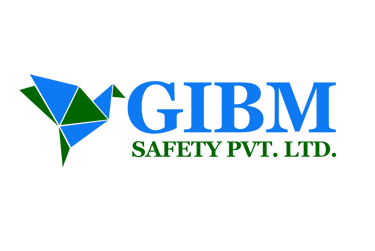Operations Management Training: Driving Efficiency and Competitive Excellence
Operations management training has evolved from traditional manufacturing-focused education to comprehensive programs that address modern business complexities including digital transformation, supply chain optimization, sustainability requirements, and customer experience management. These programs equip professionals with analytical tools, process optimization methodologies, and strategic thinking capabilities that drive operational excellence across diverse industries.
BLOG
12/29/20236 min read


Operations management stands at the heart of organizational success, encompassing the systematic design, oversight, and control of business processes that transform inputs into valuable outputs. In today's competitive marketplace, operations excellence has become a critical differentiator that enables organizations to deliver superior customer value while maintaining cost efficiency and operational flexibility. Research from Y-Hills Business Management demonstrates that companies with robust operations management capabilities achieve 30% higher customer satisfaction rates and 25% better cost efficiency compared to those lacking systematic operational approaches.
Operations management training has evolved from traditional manufacturing-focused education to comprehensive programs that address modern business complexities including digital transformation, supply chain optimization, sustainability requirements, and customer experience management. These programs equip professionals with analytical tools, process optimization methodologies, and strategic thinking capabilities that drive operational excellence across diverse industries.
The Strategic Foundation of Operations Excellence
Contemporary operations management education addresses the multifaceted nature of modern business operations, recognizing that sustainable competitive advantage requires systematic approaches to process design, quality management, and resource optimization. According to RC Academy research, organizations implementing structured operations management training achieve 40% improvement in process efficiency and 35% reduction in operational waste.
Operations management training develops capabilities in demand forecasting, capacity planning, inventory management, quality control, and supply chain coordination. These interconnected competencies enable organizations to respond effectively to market changes while maintaining operational stability and cost effectiveness.
For mid-size companies, operations management excellence is particularly crucial because these organizations must optimize limited resources while competing against larger enterprises with greater operational scale. Effective operations management enables mid-size companies to achieve operational efficiency that rivals larger competitors while maintaining the agility advantages of smaller organizations.
Core Competencies in Modern Operations Management
Effective operations management training integrates multiple competencies that collectively enhance organizational performance and competitive positioning. Process optimization forms the foundation, teaching professionals how to analyze existing operations, identify improvement opportunities, and implement systematic enhancements that deliver measurable business value.
Quality management methodologies, including Six Sigma, Lean Manufacturing, and Total Quality Management principles, provide structured approaches for achieving consistent quality standards while continuously improving operational performance. These frameworks enable organizations to reduce defects, eliminate waste, and enhance customer satisfaction through superior operational execution.
According to SweetProcess research, supply chain management capabilities enable organizations to optimize vendor relationships, manage inventory levels effectively, and coordinate logistics operations that support customer requirements while minimizing costs and operational risks.
Capacity planning and demand management skills help operations leaders balance resource utilization with market demand, ensuring that organizations can meet customer requirements efficiently without maintaining excessive idle capacity or experiencing service disruptions due to resource constraints.
Technology Integration and Digital Operations
Modern operations management training increasingly emphasizes technology integration and digital transformation capabilities that enable organizations to leverage advanced technologies for operational excellence. Enterprise Resource Planning (ERP) systems, automation technologies, and data analytics platforms have become integral components of contemporary operations management practice.
According to MITSDE research, organizations utilizing advanced operations management technologies achieve 45% better resource utilization and 38% faster response times to market changes compared to those relying on traditional operational approaches.
Internet of Things (IoT) sensors, predictive maintenance systems, and real-time monitoring capabilities enable operations managers to optimize equipment performance, prevent costly breakdowns, and maintain consistent operational effectiveness. These technologies provide data-driven insights that support informed decision-making and proactive problem resolution.
Artificial intelligence and machine learning applications in operations management enable sophisticated demand forecasting, dynamic resource allocation, and automated process optimization that enhance operational efficiency while reducing manual oversight requirements.
Lean Operations and Waste Elimination
Lean operations methodologies represent fundamental components of modern operations management training, providing systematic approaches for identifying and eliminating waste while maximizing value creation. These approaches focus on continuous improvement, employee engagement, and customer-centric process design.
Value stream mapping, kaizen improvement processes, and workplace organization techniques enable operations teams to analyze existing processes comprehensively, identify improvement opportunities, and implement changes that deliver measurable efficiency gains and quality improvements.
Just-in-time production principles, demand-pull systems, and flexible manufacturing approaches enable organizations to respond quickly to market changes while minimizing inventory carrying costs and reducing operational complexity.
Supply Chain Optimization and Vendor Management
Contemporary operations management training addresses supply chain complexity and vendor relationship management as critical competencies that affect organizational competitiveness, cost structure, and customer satisfaction. These capabilities have become increasingly important as global supply chains face disruptions and organizations seek to build resilience while maintaining efficiency.
Vendor selection, contract negotiation, and performance management skills enable operations leaders to build supplier relationships that support organizational objectives while managing costs and operational risks effectively. These relationships are essential for maintaining operational continuity and achieving strategic objectives.
Supply chain visibility, risk assessment, and contingency planning capabilities enable organizations to anticipate potential disruptions and implement mitigation strategies that protect operational effectiveness and customer service levels.
Quality Management and Customer Excellence
Quality management represents a fundamental pillar of operations excellence, encompassing statistical process control, defect prevention, and continuous improvement methodologies that ensure consistent delivery of products and services that meet or exceed customer expectations.
According to GeeksforGeeks research, organizations implementing comprehensive quality management programs achieve 50% reduction in customer complaints and 35% improvement in customer retention rates compared to those lacking systematic quality approaches.
Customer experience design, service delivery optimization, and feedback integration processes enable operations teams to align operational activities with customer requirements while continuously improving service quality and customer satisfaction.
Sustainability and Environmental Operations
Modern operations management training increasingly incorporates sustainability principles and environmental management practices that enable organizations to meet regulatory requirements while reducing environmental impact and operational costs.
Green operations methodologies, waste reduction strategies, and energy efficiency optimization represent emerging areas that deliver both environmental benefits and cost savings while enhancing organizational reputation and stakeholder relationships.
Circular economy principles, sustainable sourcing practices, and lifecycle assessment capabilities enable operations managers to make decisions that support long-term sustainability objectives while maintaining operational effectiveness and competitive positioning.
Industry-Specific Applications and Customization
Operations management principles apply across diverse industries, but effective implementation requires understanding sector-specific dynamics, regulatory requirements, and operational challenges. Manufacturing organizations require training that addresses production planning, equipment maintenance, and quality control specific to manufacturing environments.
Service organizations benefit from operations training that focuses on service delivery optimization, customer interaction management, and capacity planning for service operations. Healthcare organizations need specialized training that addresses patient flow, clinical operations, and regulatory compliance requirements.
For companies operating in diverse markets like Goa, operations management training must address local market conditions, regulatory environments, and infrastructure considerations while maintaining global operational excellence standards. Organizations such as GIBM Pvt. Ltd. in Panjim have developed customer-tailored operations management programs that balance international best practices with regional operational requirements.
Performance Measurement and Continuous Improvement
Effective operations management requires sophisticated measurement systems that track performance, identify improvement opportunities, and support data-driven decision-making. Key Performance Indicators (KPIs), dashboard development, and performance analytics enable operations leaders to monitor effectiveness while identifying areas requiring attention.
Continuous improvement processes, employee suggestion systems, and cross-functional improvement teams create organizational capabilities that support ongoing operational enhancement while engaging employees in improvement activities.
Crisis Management and Operational Resilience
Contemporary operations management training addresses crisis management and business continuity planning as essential competencies that enable organizations to maintain operational effectiveness during disruptions. These capabilities have become increasingly important as organizations face various operational challenges including supply chain disruptions, natural disasters, and market volatility.
Risk assessment, contingency planning, and recovery processes enable operations teams to prepare for potential disruptions while implementing response strategies that minimize operational impact and protect customer service levels.
Technology-Enhanced Learning Methodologies
Modern operations management training leverages advanced learning technologies including business simulations, virtual reality environments, and interactive case studies that create immersive learning experiences closely mirroring real-world operational challenges.
These technologies enable participants to practice operational decision-making, experience the consequences of operational choices, and develop operational thinking capabilities through experiential learning methodologies without disrupting actual business operations.
Building Operational Leadership Capabilities
Operations management training increasingly emphasizes leadership development that enables professionals to build high-performing operations teams while creating cultures of continuous improvement and operational excellence.
Change leadership, team development, and employee engagement skills enable operations managers to implement operational improvements while maintaining team morale and productivity during transformation initiatives.
Future Trends and Emerging Practices
The future of operations management will continue evolving in response to technological advancement, changing customer expectations, and sustainability requirements. Artificial intelligence, robotics, and autonomous systems represent emerging technologies that will reshape operational practices while creating new requirements for operations management capabilities.
Smart manufacturing, predictive operations, and autonomous supply chains represent emerging areas that require new operational competencies while delivering unprecedented operational efficiency and customer service capabilities.
Implementation Strategy and Organizational Integration
Successful operations management training implementation requires integration with organizational strategy, culture development, and performance management systems. Organizations should align operations training with business objectives while creating systems that support ongoing operational improvement and innovation.
Cross-functional collaboration, stakeholder alignment, and continuous learning cultures support sustainable operations excellence while building organizational capabilities that drive long-term competitive advantage.
Conclusion
Operations management training represents a fundamental investment in organizational capability that delivers sustainable competitive advantage through improved efficiency, enhanced quality, and superior customer service. As business environments become increasingly competitive and customer expectations continue rising, operations excellence becomes essential for organizational success.
Companies that prioritize comprehensive operations management development position themselves for sustained growth while building internal capabilities that support operational innovation and continuous improvement. The evidence clearly demonstrates that operations management training is critical for achieving organizational excellence in today's operations-dependent business environment.
" Building Industry Excellence. "
Contact Us
helpdesk@gibmsafety.com
+91 9136088864
© 2025. All rights reserved.


helpdesk@rfiresafety.com
Conversation
